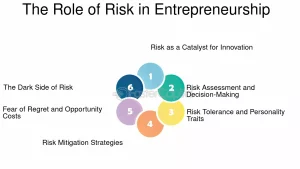
Life is full of decisions, both big and small. From choosing a career path to deciding what to have for dinner, each choice involves weighing risks and rewards. While some people seem to have a natural ability to navigate uncertainty, others might struggle with the anxiety that accompanies high-stakes decisions. But what if this process of risk assessment isn’t just an obstacle but a skill that can be developed?
At its core, decision-making is about evaluating options under uncertainty. Every choice comes with potential outcomes, some of which are favorable, while others may bring challenges. The ability to assess these outcomes, balance probabilities, and make the best possible choice is a crucial life skill. This skill isn’t just useful in complex financial negotiations or business strategy; it’s relevant in everyday life.
One way people become more adept at decision-making is through experience. The more we encounter various situations where we need to take risks, the better we understand how to manage them. This involves learning from past successes and failures, honing intuition, and developing a deeper understanding of how to predict possible outcomes. However, experience alone isn’t enough; critical thinking and analysis also play a significant role.
In many ways, effective decision-making is like a form of betting. Every time you make a choice, you’re essentially placing a wager on a particular outcome. However, unlike gambling, life decisions often allow for deeper research, more thoughtful deliberation, and even collaboration with others to minimize risk. It’s about taking calculated risks rather than relying purely on chance.
Another key factor in making well-informed decisions is recognizing biases that might cloud judgment. Cognitive biases, such as overconfidence or fear of loss, can lead people to make decisions that aren’t in their best interest. Awareness of these biases can help improve the quality of the choices we make.
In conclusion, decision-making is an art that involves evaluating risks, managing uncertainty, and sometimes even embracing the unknown. While no one can predict the future with complete accuracy, developing the ability to assess probabilities and outcomes can significantly improve the way we navigate through life’s challenges. Whether we realize it or not, every day we’re engaging in a delicate dance with risk, trying to tip the scales in our favor.


